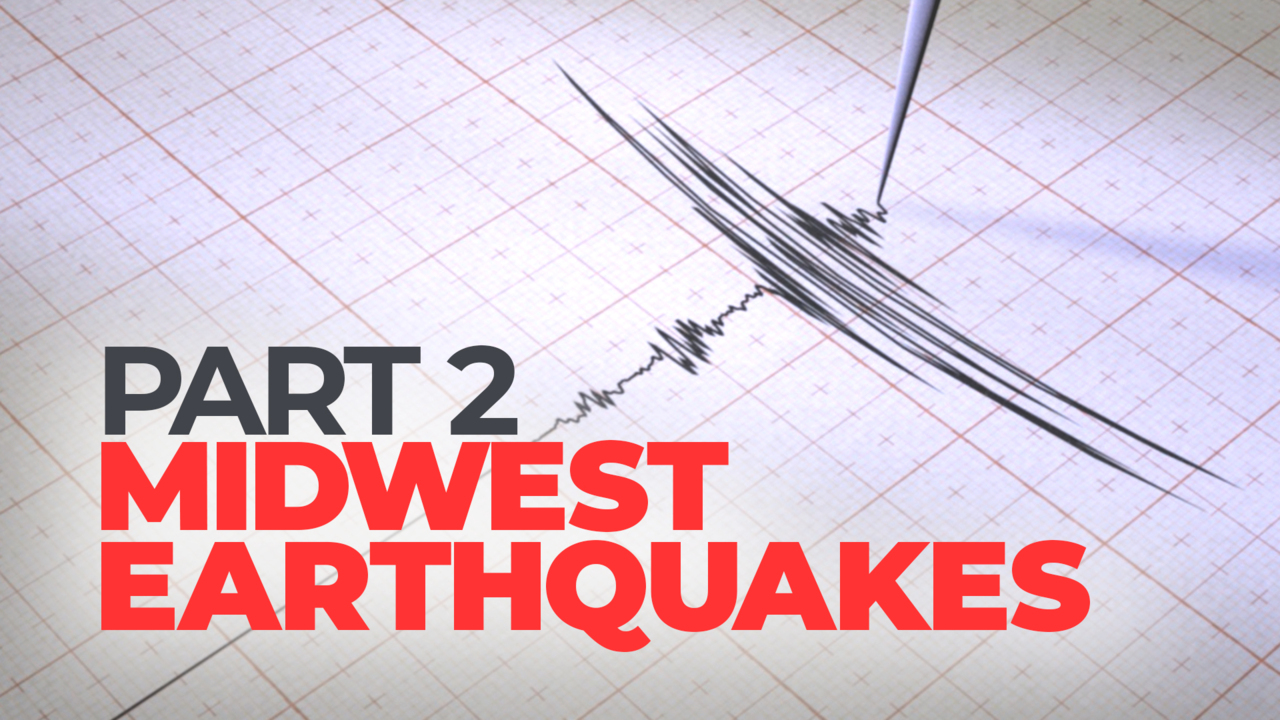
MAHMOUD BENNETT: EXPERTS AGREE. IT’S A TICKING TIME BOMB.
WILKINSON: “THE GEOLOGY HERE MAKES IT VERY SUSCEPTIBLE TO A LARGE AREA OF IMPACT AND THAT ADDS TO THE CATASTROPHIC NATURE OF THE HAZARD ITSELF.”
BENNETT: THAT’S BECAUSE THE NEW MADRID FAULTS AREN’T EMBEDDED IN HARD ROCK, BUT SOFT SEDIMENT.
WILKINSON: “IT’S VERY UNIQUE TO OTHER SEISMIC ZONES IN THE COUNTRY. THE WEST COAST PRIMARILY. A SIMILAR SIZE EARTHQUAKE YOU WOULD SEE IN CALIFORNIA WHICH CAN AFFECT A VERY SMALL AREA. THESE EARTHQUAKES HERE, CAN HAVE A TWENTY-TIMES LARGER AREA OF IMPACT.”
BENNETT: BRENNA MACDONALD WITH THE MISSOURI GEOLOGICAL SURVEY SAYS THE MYSTERIES AND UNKNOWNS OF THE NEW MADRID ZONE, IS WHY IT’S CONSIDERED SO DANGEROUS.
SHE TOLD US, QUOTE: “WE DON’T KNOW EXACTLY WHERE THE TRACE OF THE FAULTS ARE BECAUSE THEY ARE BURIED SO DEEPLY UNDERNEATH THE SEDIMENTS. IN SOME AREAS, THEY ARE MORE THAN A THOUSAND FEET DEEP.”
THE LAST LARGE EARTHQUAKE IN THIS ZONE HAPPENED BACK IN 1895. BUT IN 2011, A 5.8 EARTHQUAKE HIT VIRGINIA. IT WAS THE LARGEST, MOST WIDELY FELT EARTHQUAKE THE U.S. GEOLOGICAL SURVEY HAS EVER RECORDED, WITH DAMAGE REACHING AS FAR AS WASHINGTON D.C.
PRATT: “IT MIGHT BE DECADES OR 100 YEARS BEFORE WE GET ANOTHER MAGNITUDE 6 OR 7. BUT IT ALSO COULD HAPPEN TOMORROW. WE REALLY JUST HAVE NO WAY OF PREDICTING THAT.”










